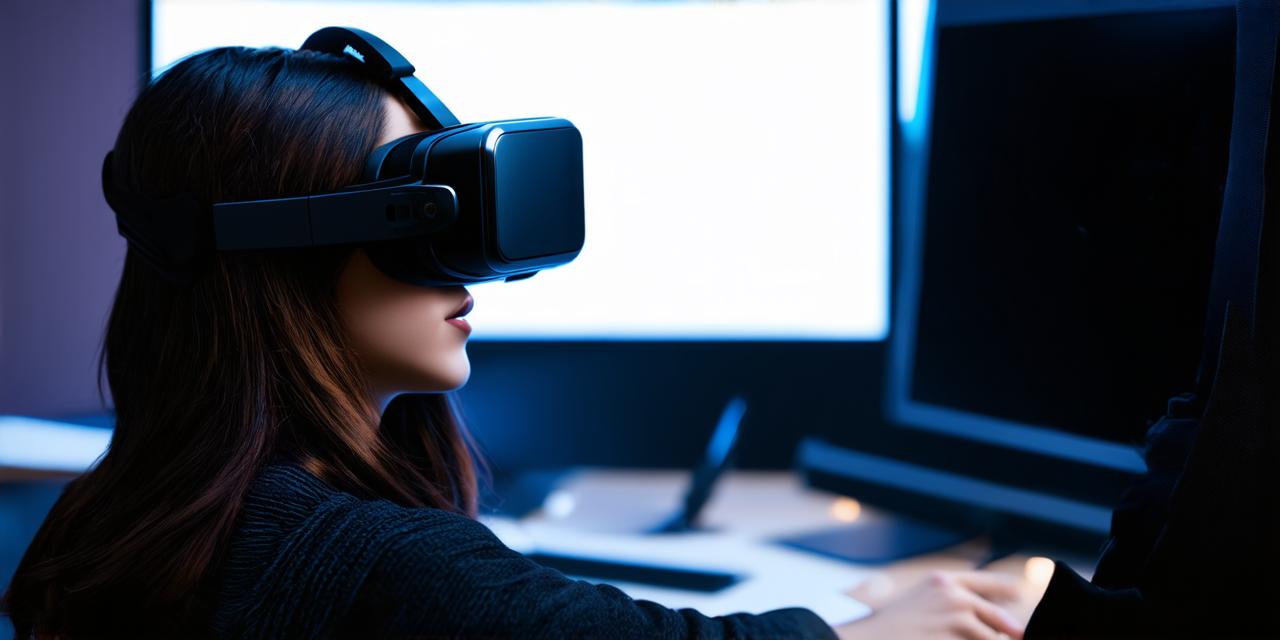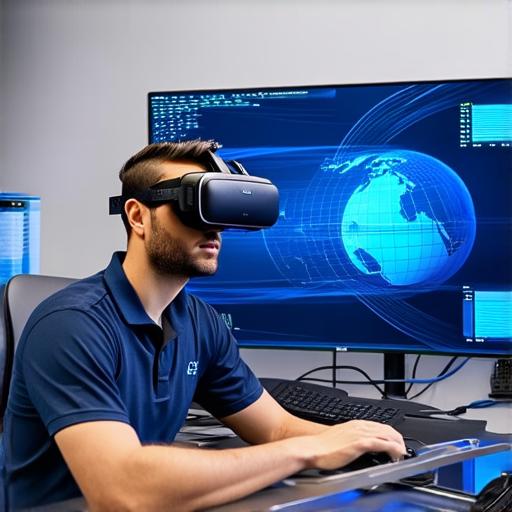
What are the responsibilities of a virtual reality developer?
Virtual Reality (VR) Technology
Virtual reality (VR) technology is rapidly advancing and becoming more mainstream in various industries, such as gaming, education, and healthcare. As VR continues to grow, so does the need for skilled developers to create engaging and immersive experiences for users.
Responsibilities of a Virtual Reality Developer
Virtual reality developers are responsible for designing, creating, and testing VR experiences that are interactive, immersive, and engaging. Some of the main responsibilities of a virtual reality developer include:
- Designing VR environments and experiences
- Creating 3D models and animations
- Writing code
- Testing and debugging
- Collaboration with other teams
Designing VR Environments and Experiences
Virtual reality developers must have a strong understanding of design principles, including color theory, layout, and 3D modeling. They must also be able to create interactive elements that allow users to interact with the environment and experience.
Creating 3D Models and Animations
Virtual reality developers must have expertise in creating 3D models and animations that are optimized for VR. This requires a deep understanding of computer graphics, programming, and physics.
Writing Code
Virtual reality developers must be proficient in various programming languages, such as C++, Java, and Unity, to create interactive experiences. They must also have experience with VR development platforms like Unreal Engine and Oculus SDK.
Testing and Debugging
Virtual reality developers are responsible for testing their VR applications to ensure they work correctly and providing feedback to the team. They must be able to identify bugs, optimize performance, and troubleshoot issues that arise during development.

Collaboration with Other Teams
Virtual reality developers often work closely with other teams, such as artists, designers, and project managers, to create cohesive VR experiences. Effective communication skills are essential for success in this role.
Skills Needed for Success
Virtual reality development requires a unique set of skills that are different from traditional software development. Some of the skills needed for success in virtual reality development include:
- Creativity and Imagination
- Technical Expertise
- Attention to Detail
- Teamwork and Collaboration
- Adaptability
Creativity and Imagination
Virtual reality development requires creative thinking and the ability to imagine new and innovative experiences. Developers must be able to come up with fresh ideas and concepts that will captivate users.
Technical Expertise
Virtual reality development requires a deep understanding of computer graphics, programming, and physics. Developers must have expertise in various programming languages and development platforms to create engaging VR experiences.
Attention to Detail
Virtual reality development is a complex process that requires attention to detail. Developers must be able to catch small mistakes and inconsistencies that could negatively impact the user experience.
Teamwork and Collaboration
Virtual reality development often involves working with other teams, such as artists, designers, and project managers. Effective communication skills and the ability to collaborate are essential for success in this field.
Adaptability
Virtual reality technology is constantly evolving, and developers must be able to adapt to new tools and technologies to stay current in the industry.
Real-Life Examples of VR Development
There are many real-life examples of virtual reality development that illustrate the responsibilities and skills needed for success in this field. Some examples include:
- Oculus Rift
- Google Daydream
Oculus Rift
The Oculus Rift is a popular VR headset that allows users to experience immersive environments. Developers must create engaging and interactive experiences that take advantage of the unique features of the Oculus Rift, such as hand tracking and room-scale environments.
Google Daydream
Google Daydream is a VR platform that allows developers to create experiences for Android smartphones.


